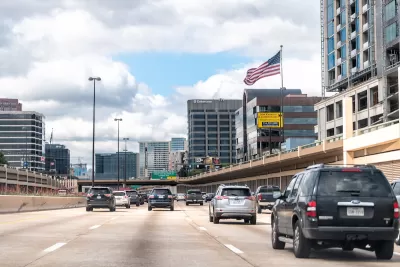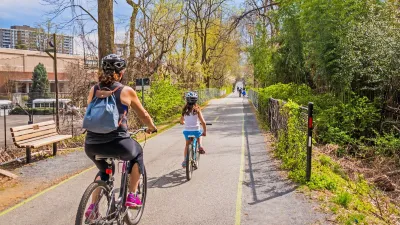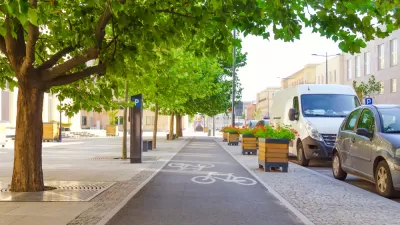The state is deploying AI-assisted technology to identify dangerous road segments and improve signal timing.

Texas transportation officials are deploying new tech to improve traffic safety and reduce fatalities, reports Chris Teale for Route Fifty.
One tool the state is using is intelligent transportation software that compiles traffic data to improve signal timing and shed light on safety issues. “Together, the data helps traffic engineers see, for example, where drivers are slamming on their brakes or hitting the gas pedal. That, in turn, allows them to determine where safety improvements should be made to reduce the risk of accidents.”
According to Mike Arellano, deputy district director for the Texas Department of Transportation’s Austin District, the technology has led to a 29 percent reduction in ‘secondary’ crashes. “Meanwhile, the data has helped the state open up roadways faster after crashes. Roads are back to normal operations and traffic flow 44 minutes earlier than before.”
This approach requires connected traffic signals, sensors on vehicles, and other infrastructure that is, for now, out of reach for many smaller cities.
FULL STORY: How one state is using technology to curb high pedestrian fatality rates

Study: Maui’s Plan to Convert Vacation Rentals to Long-Term Housing Could Cause Nearly $1 Billion Economic Loss
The plan would reduce visitor accommodation by 25,% resulting in 1,900 jobs lost.

North Texas Transit Leaders Tout Benefits of TOD for Growing Region
At a summit focused on transit-oriented development, policymakers discussed how North Texas’ expanded light rail system can serve as a tool for economic growth.

Using Old Oil and Gas Wells for Green Energy Storage
Penn State researchers have found that repurposing abandoned oil and gas wells for geothermal-assisted compressed-air energy storage can boost efficiency, reduce environmental risks, and support clean energy and job transitions.

Private Donations Propel Early Restoration of Palisades Playground
Los Angeles has secured over $1.3 million in private funding to restore the Pacific Palisades playground months ahead of schedule, creating a modern, accessible space that supports community healing after recent wildfires.

From Blight to Benefit: Early Results From California’s Equitable Cleanup Program
The Equitable Community Revitalization Grant (ECRG) program is reshaping brownfield redevelopment by prioritizing projects in low-income and environmental justice communities, emphasizing equity, transparency, and community benefits.

Planting Relief: Tackling Las Vegas Heat One Tree at a Time
Nevada Plants, a Las Vegas-based nonprofit, is combating the city’s extreme urban heat by giving away trees to residents in underserved neighborhoods, promoting shade, sustainability, and community health.
Urban Design for Planners 1: Software Tools
This six-course series explores essential urban design concepts using open source software and equips planners with the tools they need to participate fully in the urban design process.
Planning for Universal Design
Learn the tools for implementing Universal Design in planning regulations.
Ascent Environmental
Borough of Carlisle
Institute for Housing and Urban Development Studies (IHS)
City of Grandview
Harvard GSD Executive Education
Toledo-Lucas County Plan Commissions
Salt Lake City
NYU Wagner Graduate School of Public Service





























